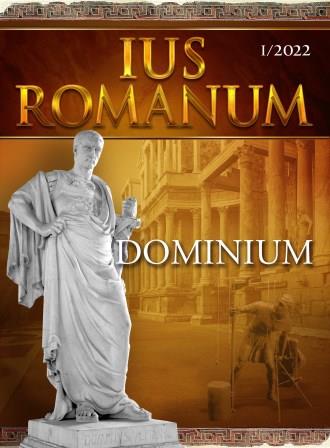РИМСКОТО ПОНЯТИЕ ЗА СОБСТВЕНОСТ: ОБЩ ПРЕГЛЕД
THE ROMAN CONCEPT OF PROPERTY: AN OVERVIEW
Author(s): Jean-Pierre CoriaSubject(s): Law, Constitution, Jurisprudence, Civil Law, Law and Transitional Justice, Law on Economics, Canon Law / Church Law, Philosophy of Law, Commercial Law, Court case, Comparative Law, Administrative Law
Published by: Софийски университет »Св. Климент Охридски«
Keywords: ownership; power; dominium ex iure Quiritium; legal limitations; praetorian protection; long-term land leases
Summary/Abstract: The Romans didn’t develop a dogmatic analysis of the right to property. They are the jurists of the Middle Ages and the modern era which, starting from the scattered texts of Roman law, formulated an absolutist conception of property. Whether, originally, the dominium ex iure Quiritium corresponds to a quasi-sovereignty, it is more a power than a right of appropriation in the modern sense of the word; and property was never considered in Rome as an unlimited power in time and in space. This right has, in fact, suffered significant infringements depending on political and economic history. First, it is a legal limitations based on the public interest and the necessities of town planning as well as on the idea of abuse by right. Another form of violation of the absolute right to property has been the multiplication of situations of de facto property, who have benefited from the judicial protection of the magistrate. On the other hand, Roman law offers the example of a sovereignty shared ownership: due to dismemberments, usually temporary, with personal easements, but especially with long-term land leases– superficies and emphyteusis - which lead to a real dissociation of ownership real estate.
Journal: IUS ROMANUM
- Issue Year: 2022
- Issue No: 1
- Page Range: 17-32
- Page Count: 16
- Language: Bulgarian

